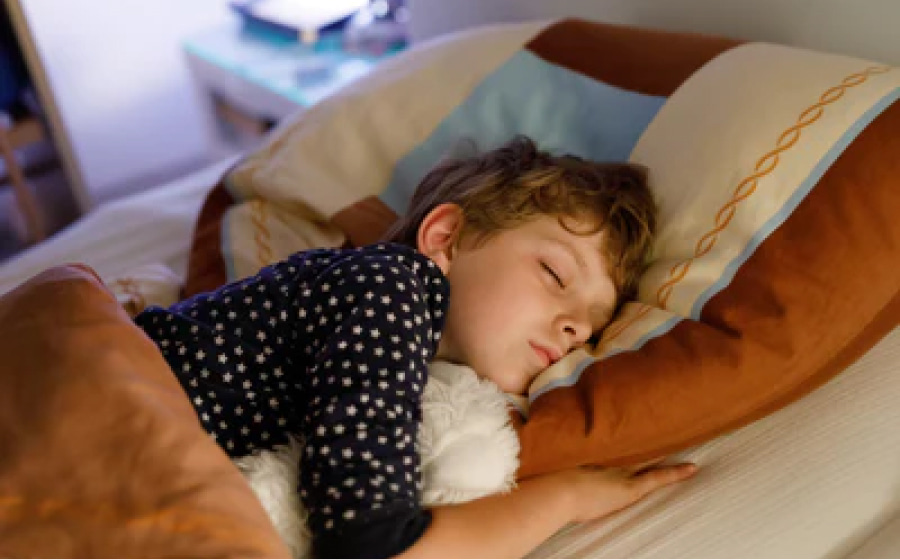Insomnia is a common condition. In fact, up to 50% of American toddlers, 20-40% of pre-school and school-aged children, and greater than 10% or adolescents have insomnia at some point. It occurs even more frequently in children with disorders such as Autism. Insomnia is generally characterized by difficulty falling asleep, staying asleep or waking earlier than desired in the morning. If these patterns exist at least three times a week, for three months or more it is categorized as chronic insomnia. When parents are confronted with a child who has insomnia, they often desperately look for solutions to help get their child to sleep. Many times, they try melatonin.
Understanding Our Body Clock
Circadian rhythms are day and night cycles that are controlled by the body’s internal clock. One of the most important circadian rhythms is the sleep-wake cycle. Some people have an early sleep-wake cycle, meaning their body is prepared to fall asleep earlier in the evening and wake early in the morning. This is known as an advanced sleep-wake phase; and casually, these people are called morning larks. Other people, in particular some middle and high schoolers, have a delay in their sleep-wake cycle. These individuals may not fall asleep until 2 am and may not wake naturally until 10 am or noon. Casually, these people are called night owls.
Many people think they are morning larks or night owls, when in fact they more likely have an entirely separate sleep disorder, such as insomnia or sleep apnea, making them drowsy at unnatural times.
The internal body clock that controls our circadian rhythm is sensitive to light, so as the night falls, our internal clock initiates the production of melatonin, a hormone that our brain produces naturally to help signal that bedtime is near.
Using Melatonin to Sleep
There are some healthy or appropriate short term uses for melatonin to aid in sleep for kids. In the case of a delayed sleep-wake cycle, in which middle and high schoolers are staying up late and sleeping in, and do not have another sleep disorder, pediatric sleep specialists will sometimes prescribe a small dose of melatonin to be taken a few hours before the desired sleep time. This helps the person’s body clock begin to cycle earlier allowing them to, over just a few days of treatment, fall asleep and wake up earlier.
There are some potentially unhealthy ways that melatonin is being used to induce sleep in kids. Often, parents give their kids melatonin to get them to go to bed and get to sleep. They often are unknowingly using melatonin as a hypnotic to cause drowsiness and induce sleep irrespective of the body clock. In our experience, most parents who are using melatonin as a sleep aid for their child, are providing as much as they need to achieve the desired response – to get their child to fall asleep. We see people using as much as 3 – 20 mg per night, which results in a blood concentration that is greater than 50 times that which is produced by the adult brain, in a child. In addition to using higher than studied doses and doing so for a period of months or years, the timing of when it is administered also tends to be off. Parents usually give their kids melatonin within the hour of bedtime. The result is that it may help their child fall asleep, but they often do not stay asleep, may have wake early, and do not stand to have long lasting benefits to their body clock.
There are a lot that doctors still do not know about the long-term effects of regular use of high doses of melatonin. We know that in the short-term, common side effects include headache, dizziness, drowsiness, nausea, diarrhea, and bedwetting. It is also important to note, that there can be interactions with other medications and melatonin can affect the way the body metabolizes them or vice versa. For example, melatonin may decrease the effect of certain anti-epileptic drugs, and oral contraceptives can increase the drowsiness effect of melatonin.
Most people think of melatonin as a “natural” supplement, because the human body naturally produces it, but are commercially available supplements natural? There are natural versions for sale, which are produced by animal brains and these should be avoided. The most commonly available melatonin supplements are produced synthetically. Unfortunately, we don’t know exactly what we are getting because food supplements are not regulated for safety or efficacy by the FDA.
The truth is – no healthy child should need melatonin to sleep, especially over an extended period of time. An evaluation by a pediatric sleep specialist can uncover a variety of reasons that children may have difficulty sleeping. A pediatric sleep specialist can also help a child fall asleep, stay asleep and prevent early morning waking within just days of using evidence-based treatment strategies like cognitive behavioral therapy for insomnia. Getting sufficient sleep is important for development and can affect energy levels, mood, academic performance and overall health. We have learned that this can be attained naturally without the use of supplements or medications in most people.

